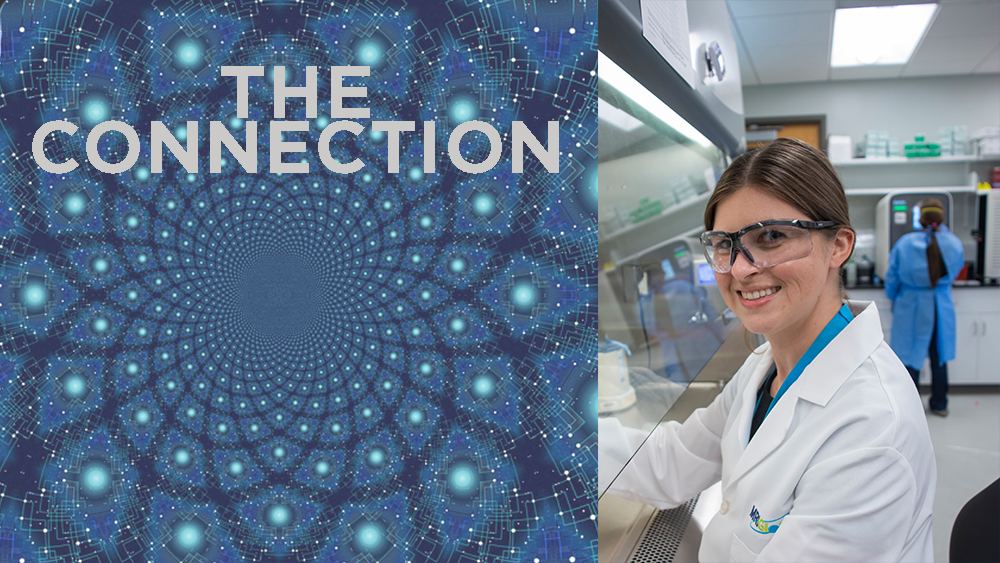
Many scientists who have given the world a great discovery, started their journey as a child inspired by exploration. For Dr. Hillary Wood, Senior Scientist in the Infectious Disease Surveillance and Diagnostics group at MRIGlobal, this may be the remedy for attracting the next generation of scientists.
In her role at MRIGlobal, Wood serves as a molecular biologist, supporting product developers through high-quality COVID-19 diagnostics in the CAP accredited, CLIA certified laboratory. “During the pandemic, my job has been even more meaningful because the testing that we have been conducting is directly supporting people working on the front lines at hospitals and keeping sensitive workplaces COVID-free,” Wood said. As a senior level scientist, Wood has been able to compound her contribution by training others to perform patient testing and training them to support FDA studies.
When Wood decided to pursue her PhD at University of Central Florida, a driving component was that her research could have a translational impact and provide meaningful contributions to the healthcare industry. Wood couldn’t have anticipated the current pandemic but has worked hard to be prepared for this point in time. “All these years of studying to be an infectious disease expert and then here we are in a pandemic,” Wood said. While she is pleased to make her impact in the industry, her real excitement is for the impact it can have on children. “Scientists, doctors and healthcare professionals are creating vaccines in record time, improving adoption of treatment, and reducing the damage of COVID-19. This kind of translational component is one that previous generations didn’t see,” Wood said. “Through the media, young children are observing the work done by researchers and scientists in nearly real-time.”
With the real time contribution during this pandemic, it is paramount that children get engaged and inspired by science to fuel future breakthroughs. Beyond that, there is a need to bring in different viewpoints. Wood believes that the STEM contributors can be more equitable for all by changing the way it is presented to children in their primary education. “You have to capture the minds of children when they are young, so that they want to be the next innovator,” Wood said. “Reading a passage and passing a test doesn’t inspire kids to be innovative or to discover a deeper understanding of what they are learning.”
Wood was highly driven early on, earning her bachelor’s degree by age 20, before starting graduate school. Although she has been incredibly busy during COVID-19 and establishing her Kansas City lab, she finds times to enjoy her two Dobermans with her husband, touring local Missouri parks to unwind. “My two dogs are best friends and ridiculously sweet. Lucky that they like each other enough to share their favorite things with each other,” Wood said.
For Wood, the desire is to make a direct impact while also empowering those around her to make a translational contribution. The narratives around COVID-19 have been unprecedented, but have provided an opportunity to showcase what scientists and researchers can achieve. Wood believes that for future success, an early curiosity in STEM is essential for the next generation of scientists.